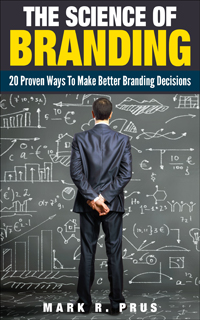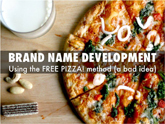Increase Recall of Your Message By…
Yes, I know the title of this post is incomplete. That is what this post is all about. Marketers know that “unfinished tasks” are the most memorable. Your brain seeks “cognitive closure” and so you will remember unfinished tasks until you complete them. This effect is called the Zeigarnik effect after Bluma Zeigarnik who studied this effect in the early 1900’s.
The first publication of the Zeigarnik effect in 1927 was based on Bluma’s observation of a waiter in the local beer garden who had an uncanny ability to remember the orders of multiple diners all the way through delivery of the meals. However, after the meal (once the waiter’s task was completed), the diners would cover up their plates and the waiter could not come close to recalling what the all the diners had ordered. Zeigarnik postulated that the waiter had extreme cognitive focus on the unfinished task that enhanced his recall, but once the meals were delivered that focus shifted elsewhere.
There are numerous studies validating this effect. My personal favorite is a recall test of advertising in which consumers watched a 30-minute TV show with ads for soft drinks, mouthwash and pain relievers (http://www.acrwebsite.org/search/view-conference-proceedings.aspx?Id=12042). In a crossover design, respondents sometimes saw ads that were full-length and sometimes saw ads that were clipped with the last 5 or 6 seconds missing. Researchers found that consumers remembered specific details about the unfinished ads significantly more than the finished ads in 3 different timeframes: immediately, 2 days later and 2 weeks later. Clearly lack of closure is a powerful tool in marketing!
So how can you use the Zeigarnik effect in your marketing? Well, you can’t just start showing ads that are clipped at the end and hope for the best.
One approach to leverage “the power of the incomplete” is to create “unfinished business” in the minds of your target market by igniting their curiosity. If your messaging causes a consumer to become curious about your product, it is likely that the person’s brain will view your messaging as an incomplete task that requires further investigation, which may lead to a Google search or click on your website. I discussed the science behind this approach in the first chapter of my branding book The Science of Branding: (www.amazon.com/Science-Branding-Proven-Better-Decisions-ebook/dp/B00TBOL6YA).
As an example, consider Buddha Balm Lip Balm. In my case, I was intrigued by the use of a key figure in Buddhism to sell something as trivial as lip balm. Buddha is recognized by Buddhists as an enlightened teacher who shares his insights to help others in their suffering. Turns out the lip balm is “designed to awaken the senses and promote awareness” and to “enhance lives and inspire positive emotional and physical well-being” so once I saw that connection I “completed the task” and was ready to move on. But I will remember Buddha Balm!
Unfinished business is something that your brain hates, so leverage the Zeigarnik effect in your marketing to engage your consumers!





